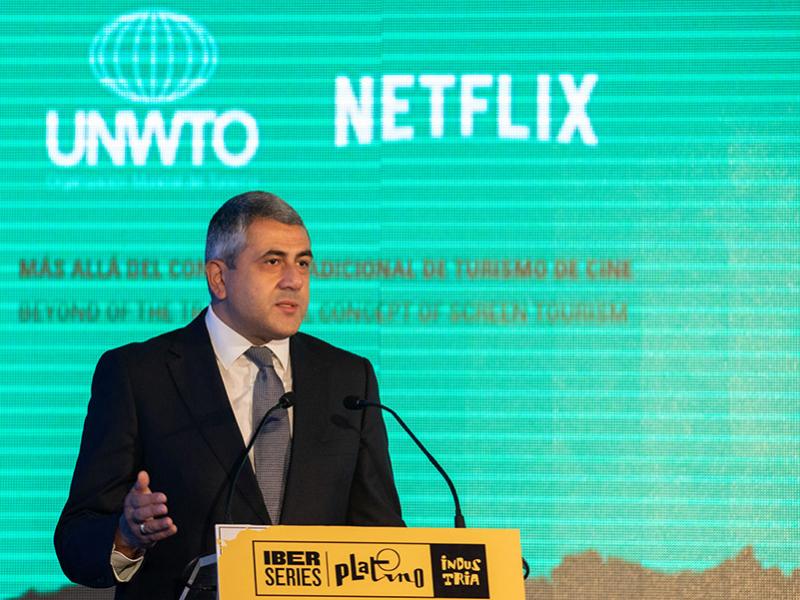UNWTO and Netflix Partner to Rethink Screen Tourism
 The findings of the research were presented in Madrid against the backdrop of the Iberseries Platino Industria – the largest international event for professionals linked to the audiovisual industry in Spanish and Portuguese.
The findings of the research were presented in Madrid against the backdrop of the Iberseries Platino Industria – the largest international event for professionals linked to the audiovisual industry in Spanish and Portuguese.
The report’s ultimate goal is to support policymakers and key stakeholders within the tourism sector to implement policies that make their destinations attractive for audio-visual producers. At the same time, it aims to help in the building of focused strategies to promote tourism and consumption of local culture, investing in skills and training to develop the local film and creative sectors to ensure a high level of talent, infrastructure and production capacity and integrating tourism and showcasing culture at film festivals to deepen the global audiences’ knowledge.
UNWTO Secretary General Zurab Pololikashvili says: “Both tourism and the audiovisual sectors celebrate and promote culture, support jobs and provide opportunities in diverse locations. The joint work of UNWTO and Netflix will help destinations realize the potential benefits of screen tourism.
Dean Garfield, Vice-President, Public Policy, Netflix: “As highlighted in this research, we have been able to demonstrate conclusively what we instinctively already believed, which is that alongside the desire to travel and visit destinations, exposure to screen content also leads to greater interest in heritage, culture, language, and developing interpersonal relationships. This truly demonstrates that the creative industries, cultural exchange, storytelling, and tourism are all interlinked and can transform the way communities perceive and connect with each other.”
Following the presentation of the Global Report, experts on tourism and the audio-visual industry shared their knowledge and insights into changing trends in screen tourism, its positive impacts on strengthening cultural affinity and the role of online streaming services in promoting tourism and cultural affinity between people, cultures and countries in line with the 2030 Agenda. The event also served to underline how public-private partnerships can support destinations to promote themselves as attractive locations for audio-visual producers.







